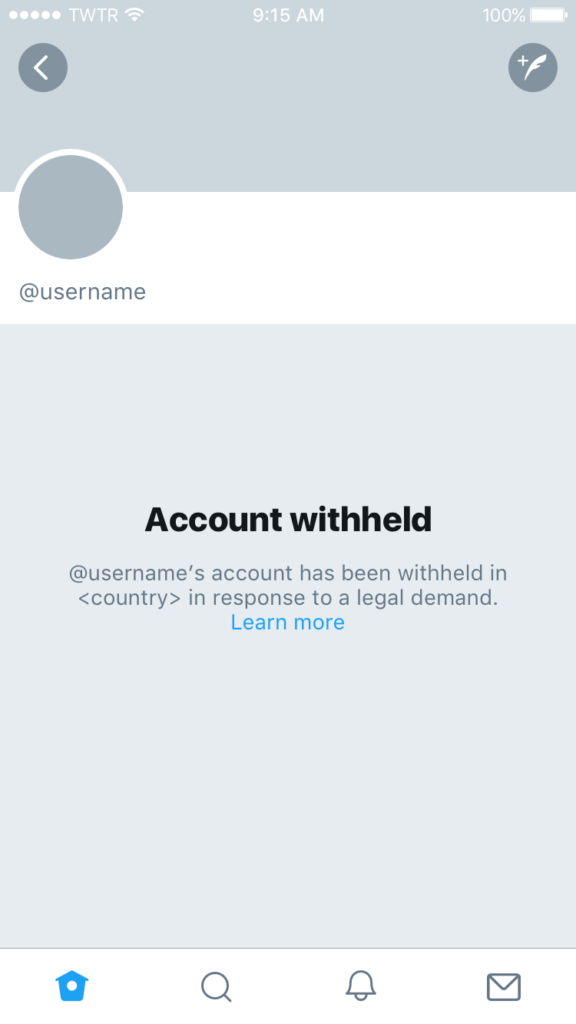Ignoring grammar to undermine speech

“It hardly needs to be stated that law is not a slave of the dictionary, nor a captive of grammar.” (Pg. 58)
I am astounded at this sentence from Karnataka High Court’s judgment of June 30th, 2023 in X Corp. v. Union of India, where it dismissed, with exemplary costs, X Corp.’s (owner of Twitter) challenge to blocking orders issued by the Union Government under Section 69A of the Information Technology Act, 2000. If the law is divorced from ordinary meaning associated with words in dictionaries or if it does not adhere to the rules of grammar, the written word could be construed to mean anything.
In X Corp., this is precisely what has happened. The High Court has signficantly expanded the scope of Section 69A. Literally interpreted, the provision only permits the Union Government to censor speech which has been published (see the intentional use of past tense in the provision). Thus, Twitter argued that the Union Government could exercise power under Section 69A only to censor published tweets and not accounts, which would prevent users from publishing tweets in the future. However, the High Court ignored the literal interpretation as “law is not a slave of the dictionary” and held that the provision empowers the Union Government to exercise prior restraint on speech by blocking accounts. As Vasudev Devadasan has argued, this has drastic consequences on online speech as imposing prior restraint is to say that any speech by the speaker is presumptively unlawful, forcing the speaker to seek legal relief before exercising their constitutionally conferred free expression rights.
The Court’s interpretative gymnastics does not end here. The rules issued under Section 69A require an inter-ministerial committee to grant a hearing to the intermediary ‘or’ the content creator before censoring speech. The Supreme Court in Shreya Singhal v. Union of India, interpreted these rules and while upholding them observed that the inter-ministerial committee must grant a hearing to the content creator, if they can be identified (See paragraph 110). The High Court simply ignored this observation by merely stating that ‘observations in a judgment cannot be construed as the provisions of a statute’ and thus, there is no need to issue notice to the content creators (See page 82). In arguendo, the Court complained that Twitter cannot espouse the cause of content creators, who have not questioned the decision of designated officers under the rules to not issue a notice. However, as Radhika Roy and Gayatri Malhotra correctly point out, this is simply incorrect. Aakar Patel, a human rights activist, had approached the High Court to intervene in these proceedings while pointing out that the designated officer did not issue him a notice before blocking his Twitter account. The High Court choose to dismiss his application.
Thus, this judgment has now provided legal sanctity (at least for now) to two questionable practices of the Union Government – a) censoring accounts instead of specific tweets, while ignoring the principle of proportionality; and b) not even providing a notice to users whose accounts or tweets they are censoring, violating the principles of natural justice. Note how both these consequences do not affect Twitter, the petitioner in this case. Twitter will continue to comply with blocking orders as it has in the past. It will also continue to received a notice whenever content on its platform is censored. However, content creators, not just on Twitter, but across social media, can lose access to their accounts and no one would even inform them. Therefore, Apar Gupta correctly asks, who really lost the case?
If I may add, the judgment has undone years of advocacy efforts to protect speech on the internet. Shreya Singhal was a public interest litigation where validity of both Section 66A and Section 69A was questioned. While the Supreme Court struck down Section 66A, it upheld Section 69A but required designated officers to grant a hearing to the content creator. When a designated officer did not grant a hearing to Tanul Thakur before blocking his website, he approached the Delhi High Court by relying upon Shreya Singhal, with support of the Internet Freedom Foundation. The Delhi High Court accepted his contention and directed the designated officer to grant him a hearing. The Karnataka High Court has now taken a different view. The Court did this not by interpreting Shreya Singhal differently but instead by asking us to ignore Shreya Singhal, entirely. It seems law is not just not a captive of grammar but it also does not care about principle of stare decisis.

